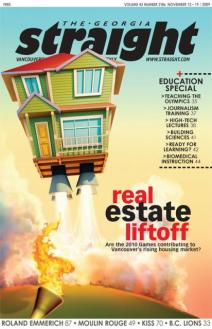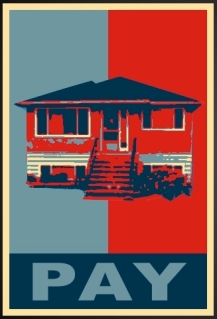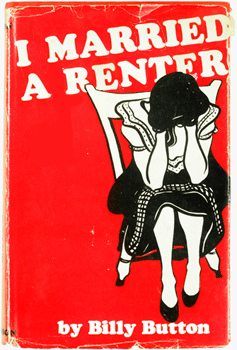Unagi Don kindly posted this observation/analysis at VREAA 12 July 2011–
“Only one UBC employee can afford to own a westside home.”
#1) The income levels required to own a westside home: $496k.
http://www.yattermatters.com/2011/07/vancouver-home-buyers-adopt-slogan/
#2) The largest employer in Vancouver (which happens to be on the west side): UBC
http://www.lib.uwo.ca/programs/companyinformationcanada/canadaslargestemployersbycity2007.html
#3) The number of UBC employees earning more than $496k: 1
Prof. Donald Wehrung in Sauder School of business earns $510k.
Stephen Toope, the university president, earns only $483k.
http://www.vancouversun.com/business/public-sector-salaries/advanced.html
For the sake of comparison, the public universities in the US located in the most expensive housing areas are probably UCLA and UCSD. (I’m excluding Manhattan as single family detached homes simply do not exist there.)
At UCLA, there are roughly 100 employees with salaries over $400k:
http://www.sacbee.com/statepay/?name=&agency=UC+LOS+ANGELES&salarylevel=400000
And the average home price in Westwood (the upscale area where UCLA is) is around $650k:
http://www.zillow.com/local-info/CA-Los-Angeles/Westwood/r_118920/
It goes without saying that UCLA is not the largest employer in LA.
At UCSD, there are roughly 70 employees with salaries over $400k:
http://www.sacbee.com/statepay/?name=&agency=UC+SAN+DIEGO&salarylevel=400000
And the average home price in La Jolla (the upscale area where UCSD is) is around $1m:
http://www.zillow.com/local-info/CA-San-Diego/La-Jolla-home-value/r_46087/
UCSD is the fourth largest employer in the San Diego area.
http://www.alliant.edu/wps/wcm/connect/resources/file/eb9ce84c34a1a77/San_Diego_Major_Employers.pdf?MOD=AJPERES

































Now I love this hyperbolic analysis but come on, people have accrued equity in other investments to ease the costs. But the mistake is not taking a step back and asking how do we pay for it all? Given that, if one buys a $5MM property, I would expect them to have the income to afford principal payback with interest over 30 years. For that bad boy we’d be looking at an average annual income of about $700K at 40% DSR and 4% interest rate.
How many BC Ferries CEOs and chief interventionalists live on the West Side? lol
“people have accrued equity in other investments”
But can they can afford it based on their income, savings and investments NOT tied to RE?
If gains from RE is the only thing making current RE prices affordable, then that is an unstable situation.
look at all this easy money! it just falls like manna from heaven!
Most of the homeowners that bought in the westside did so with parent’s help or inheritance or upsized. Sure it is tough to start from the bottom, but no said your first home has to be a detached home on the westside.
and how much of the parents help & inheritance came from RE gains?
This is the “property ladder” argument. I’d like to point out that it is incompatible with the “buy now or be priced out forever” argument. In other words, a Vancouver RE bull cannot rationally tell you to “buy now or be priced out forever” and tell you that you need to “get your foot on the property ladder”.
If the increasing in house prices continues to outpace essentially all other investments (as it has in Vancouver for the past few years) and continues to outpace wage growth too, then the possibility of upsizing in the future becomes increasingly unattainable. You need to buy the biggest property you can now, because in the future it will become increasingly less affordable to you.
The “property ladder” argument makes sense if:
(1) You have an exotic investment strategy that outpaces Vancouver housing price growth. (For example, generating 40% returns by running a small business, a hedge fund, drug dealing, etc.)
(2) You don’t believe that Vancouver housing price growth will continue to outpace traditional investments or wage growth.
Only few people can do (1), so the rest must fall into (2), meaning that they are not bullish on Vancouver RE.
“The “property ladder” argument makes sense if:
(1) You have an exotic investment strategy that outpaces Vancouver housing price growth. (For example, generating 40% returns by running a small business, a hedge fund, drug dealing, etc.)
(2) You don’t believe that Vancouver housing price growth will continue to outpace traditional investments or wage growth”.
you forgot
(3) you have patience
@eyes: fail
Rusty: Let me spell it out mathematically for you.
Let f(t) be the amount of money you have in year t.
Let g(t) be the price of a house in year t.
We’ll assume f(t) = x * alpha^t and g(t) = y * beta^t.
Suppose x < y (i.e., you can't afford the house in year 0),
and alpha g(t)? (i.e., when can you afford the house?)
The answer: Only when t is sufficiently negative.
So, patience is irrelevant.
The “property ladder” argument is misused — the failure comes when thinking that since people move up to buy more expensive properties, it is a necessary condition to afford expensive property.
Again, the correct way of looking at the problem is to look at total income and compare to total house prices — the forest — not looking at what is normally done by individuals riding the bubble — the trees.
I’m not sure what you’re saying. It sounds like you’re saying that people “move up the property ladder” and buy more expensive properties even though they cannot afford those properties?
No it is incorrect to state that since someone bought a small property at a low price, reaped increased equity, and used the equity to move up, that this justifies buying a small property today at a high price with intent to do the same. Which, bizarre as it sounds, is the exact banal argument used by friends&family to convince unfortunates to buy.
I think the yattermatters map showing the income levels needed to own an average home is not quite right because it assumes that buyers have a 20% down payment and use a 25 year amortization. I think some recent news article have put the average down payment at 7% instead of 20% so a much higher salaries are needed than those shown on map if you make an average down payment.
yeah, I kjnow faculty who work at UBC that cannot afford to buy. I’ve also heard that there’s a problem top talent applicants turning down UBC when they discover housing costs.
Winter is coming.
Don’t forget the area around Stanford as well.
Most current faculty who live on the west side now, all afforded it years ago as dunbar, etc was considered middle class. Even the condos out at UBC are around 500k just to start.
I ignored Stanford because it’s not public, so I don’t know a way to find out their salaries.
I would agree that Palo Alto (where Stanford is located) is more expensive than La Jolla and Westwood. In fact, Palo Alto is pretty much the only market I know of in the US with prices comparable to Vancouver.
One difference between Stanford and UBC is Stanford is 10 minutes from Mountain View, where prices are comparable to Burnaby, whereas UBC is 40 minutes from Burnaby.
Also, Stanford owns houses on campus and sells them to faculty for basically 50% of the market value. UBC instead sells condos on the open market and offers a $50k lump-sum to faculty for housing assistance:
http://www.treasury.ubc.ca/employee-housing-program/what-are-the-benefits/
Well, I wouldn’t know about Stanford faculty lodgings… but their colleagues/neighbours at nearby LawrenceLivermore are frequently housed for free (albeit in trailers/QuonsetHuts in the deserts of Nevada/NewMexico). If you like the wide open spaces (and a landscape that glows in the dark), it’s a nice lifestyle. Really. 😉
UC Santa Barbara would be an interesting comparison. Housing prices are very expensive there.
At Columbia I believe there’s a deal with subsidized housing and free private school for kids.
I think Uof British Columbia faculty can get some sort of interest deal on their loans. 40K interest free or something like that.
“UBC instead sells condos on the open market and offers a $50k lump-sum to faculty for housing assistance:”
whoops. need to increase my reading comprehension.
@nem at least there’s no ghosts!
The property ladder arguments work more on a life cycle basis where you start out with low salary, possibly high student debt, and no family, so all you need is to buy a small place as renting might hinder your ability to accumulate the downpayment at a fast rate. As you progress through your career, make more money, get married and have kids, etc you would “move up” the property ladder by buying bigger house to suit your family needs and/or career success and/or ego.
It doesn’t really work when property prices are increasing at above normal rate as has happened in Vancouver in the last 10 years. A 1% increase on a $1M SFH far outweights a 2% wage in pre-tax income or that $350K Condo and matches a 2% increase in a $500K townhouse price. Compound the difference over 5 or 10 years means you are just further and further behind.
derp